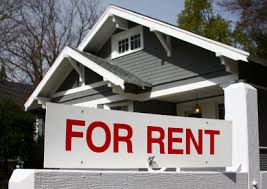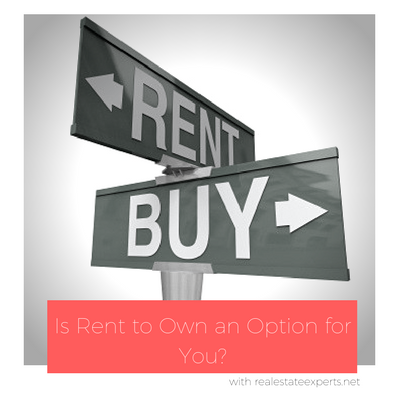Most people aren’t familiar with the option to rent-to-own homes, instead more are familiar with rent-to-own appliances. Like leasing a car to own, you can rent a house to own. Let’s break down rent-to-own agreements, and how they benefit both the seller and buyer.
Rent to Own Homes: the Basics
Rent-to-own homes are similar to car leases that end in ownership. The seller of the house gives the renter or tenant the option to buy the property sometime in the future. The time of sale is typically one to three years in the future with the price agreed upon at the beginning of the contract.
Essentially, the lease agreement on the rent to own home is the same as a standard lease but there’s a very important addition. This addition is termed “option money” which is the money tenants/buyers can use against the house in the future. Option money might be anywhere from 15-20% of the rent fee for the house. So, if you’re renting a house that’s priced at $1200 per month, you’d be paying $1440 per month, with the additional $240 going toward the purchase of the house at a later date.
Your rent money works for you, here, because it acts as a credit which will reduce the final purchase price of the house.
Sample Terms of a Rent to Own Contract Otherwise Called a Lease Purchase Agreement
Rent-to-own contracts aren’t one size fits all, but there are a handful of purchase terms you can expect to be present.
- Option money: this is a one time fee that allows a buyer to purchase the house in the future. Some contracts present this as an option for tenants to purchase later on, but not an obligation to do so.
- Purchase price: the price of the home will surely be in the contract of the rent-to-own agreement. The seller will determine the price.
- Rent: payment for the monthly fee of renting the house will be determined in the contract, too. Rent in a rent-to-own situation is typically higher than what the rent would normally be, but that’s because the buyer is putting money away to purchase the house later on.
- Maintenance: it depends on whether the seller or buyer will pay for maintenance costs. This will surely be determined in the contract. The potential buyer may be responsible for maintenance, repairs, and association fees or insurance. It’s also possible the seller will retain responsibility for these things, though the buyer will need renter’s insurance.
- Purchasing the property: at the end of the lease or agreement, the buyer can purchase the house or opt not to purchase it. However, should the buyer decide not to purchase the property, they do have to give up the money paid until that point in time. Should they decide to purchase the property, the end of the lease is the time to do so. They can then apply for financing and finally purchase the home!
Advantages for the Landlord
Of course, there are advantages for the landlord in rent-to-own situations. For one thing, sellers and landlords of rent-to-own homes have the benefit of long-term renters. Anyone entering into a rent-to-own agreement will be around for a while; after all, they’re putting money down on the house. They’ll want to stick around, at least for the terms of their agreement. Remember, that’s around one to three years, so the landlord is guaranteed a revenue stream at the very minimum.
On the subject of a revenue stream, landlords also get the added benefit of no gap-time between renters. Since the tenants are hoping to purchase the house at the end of their lease (or they have the option to), landlords don’t have to worry their property will be left vacant for long periods of time. What’s more? They know the tenants are motivated renters, which is to say their behavior as tenants will be top notch.
If you’re thinking of renting out your home, Real Estate Experts would be happy to discuss how we manage properties and our fees. We pride ourselves on being different and providing services that go above and beyond.
Advantages for the Renter or Buyer
Being a tenant in a rent-to-own home isn’t without benefits, either. Rent becomes an investment, for one thing. Your money begins to work for you because you are actively saving towards the purchase price of the home.
Poor credit history may not be an issue, either. Even if you have bad credit, a rent-to-own agreement gives you the flexibility to build up your credit, and repair bad credit. As there isn’t a finance company or bank involved, credit becomes less of an issue. You also build equity towards home ownership, which is valuable of course.
There is a one very important thing a buyer needs to know. There are no real estate forms for a rent to own homes, or a lease purchase, situation. Because the agreement can be tailored to whatever the buyer and landlord negotiate, this contract has to be drafted by a Real Estate Attorney. This is done at the buyers expense unless you can negotiate something with the landlord.
Real Estate Experts

Determining if rent-to-own is the right choice for you can be difficult, but it doesn’t have to be. Working alongside a great real estate professional can help you decide if the property is a good investment. With a professional’s help, the rent-to-own agreement will be thorough and all details will be ironed out carefully.
At Real Estate Experts, we are fierce representatives for our clients and known as expert buyer agents. Contact us and see how we can help you find just the home you are looking for. To see Real Estate Experts’ newest listings, click here, and feel free to give us a call anytime at 919-813-6449 or send us an email to [email protected].

